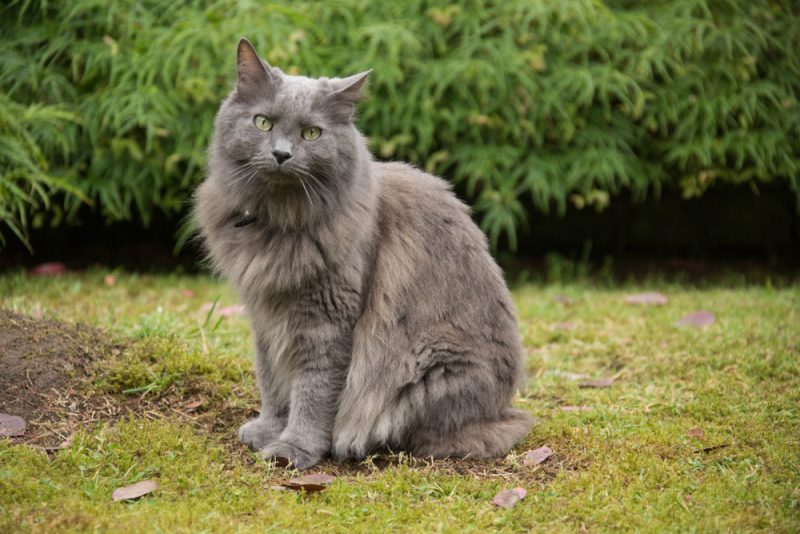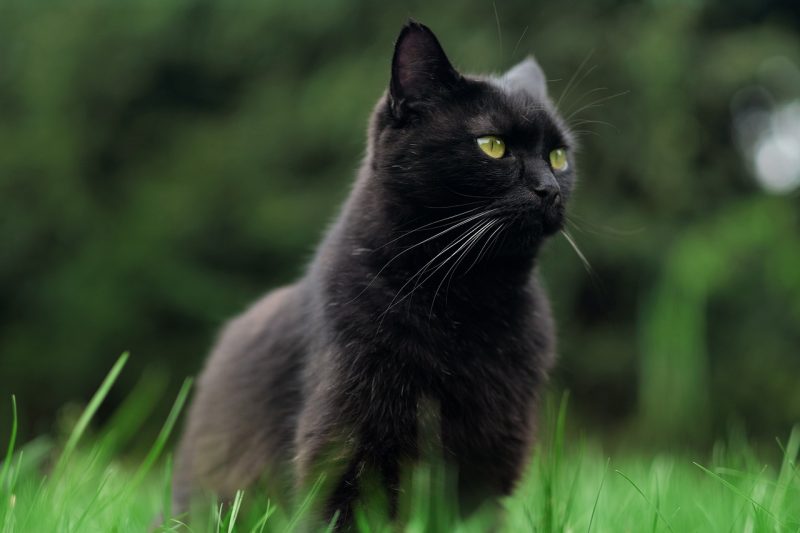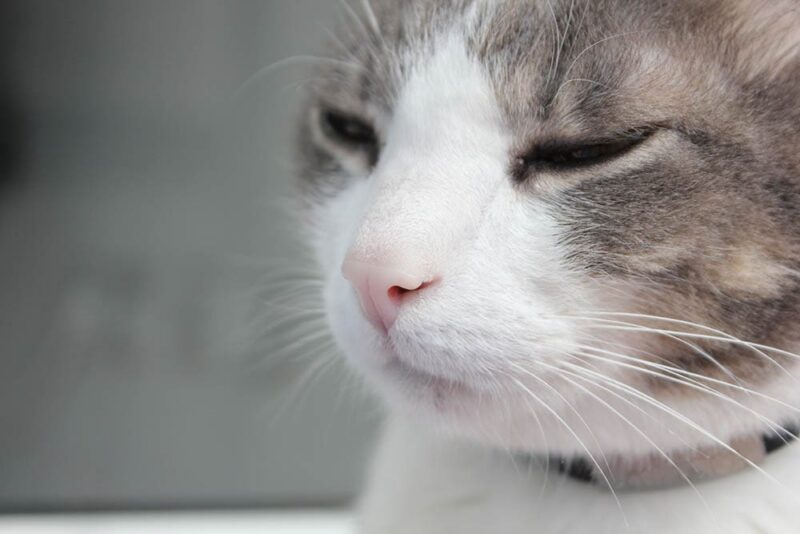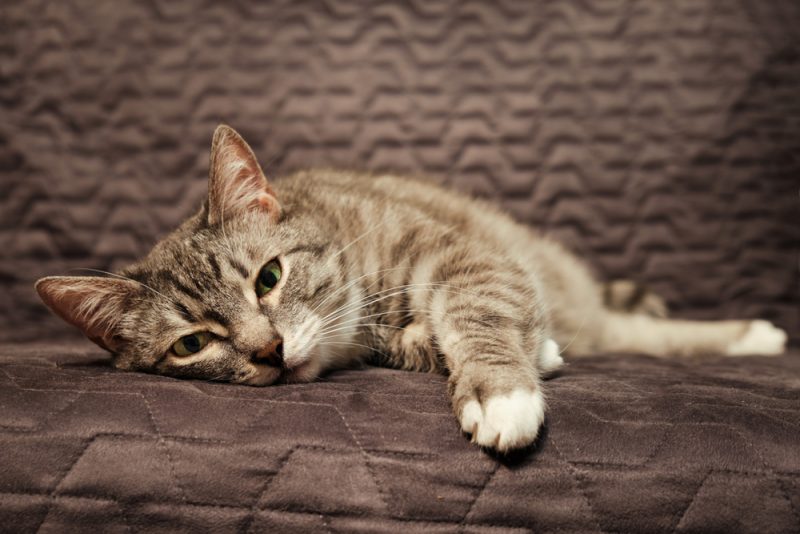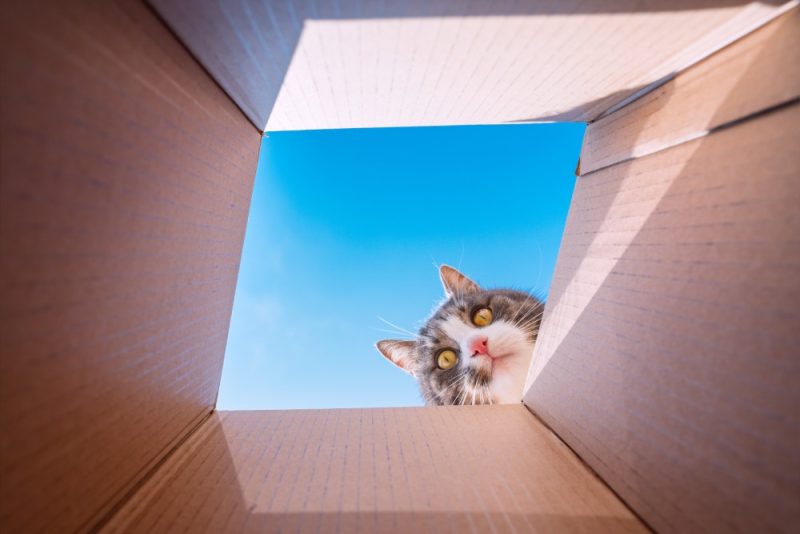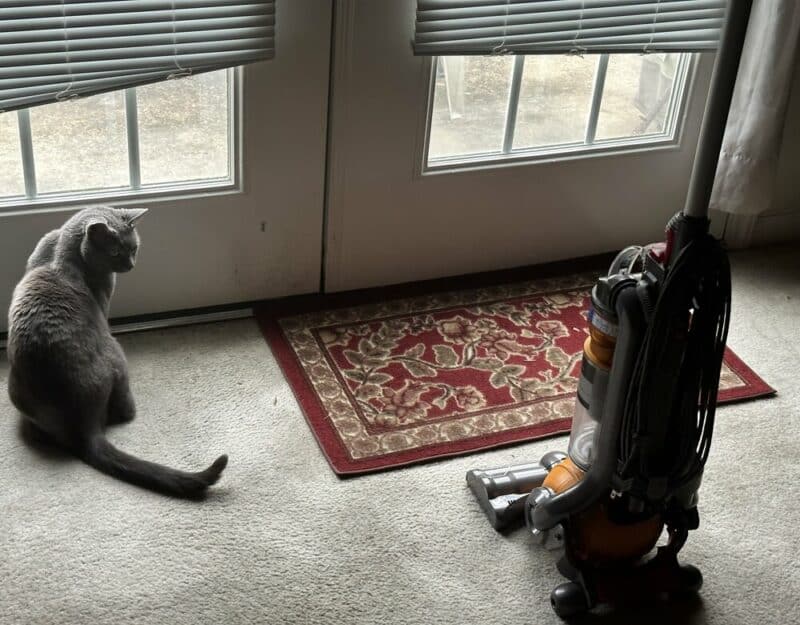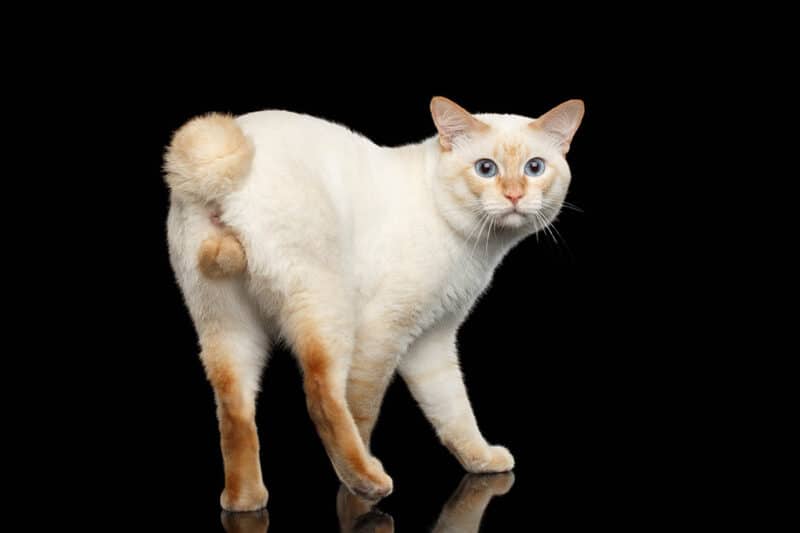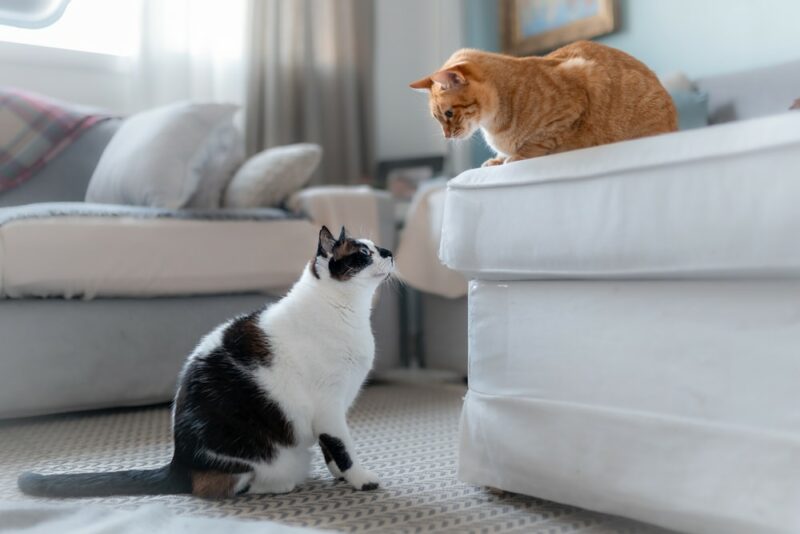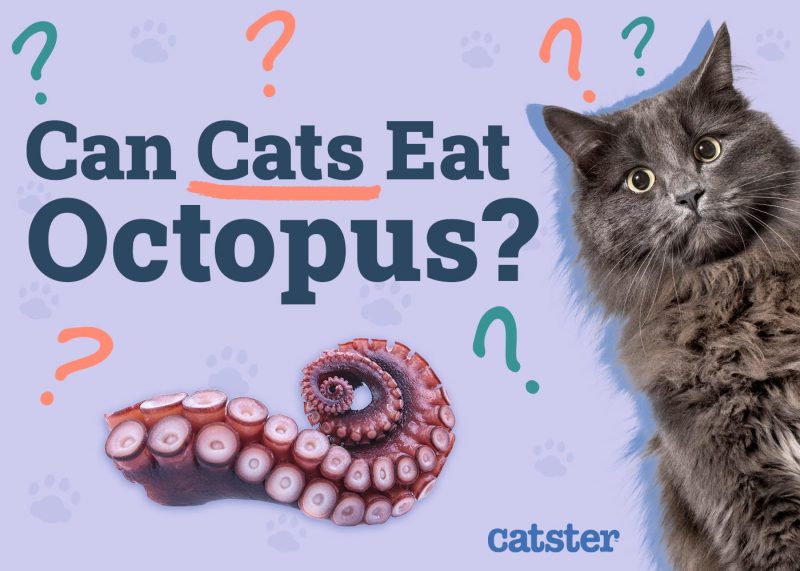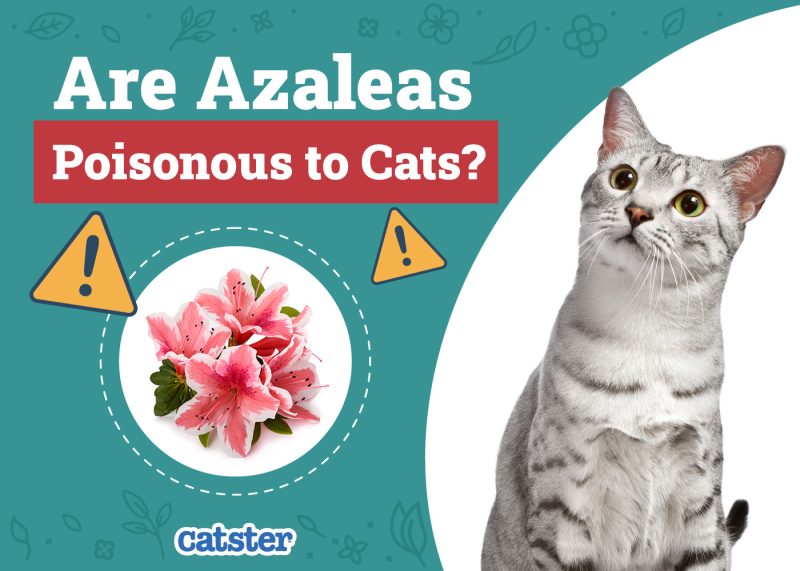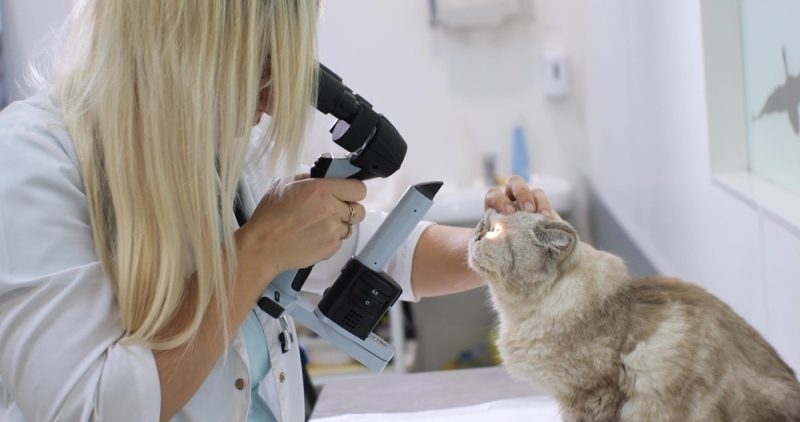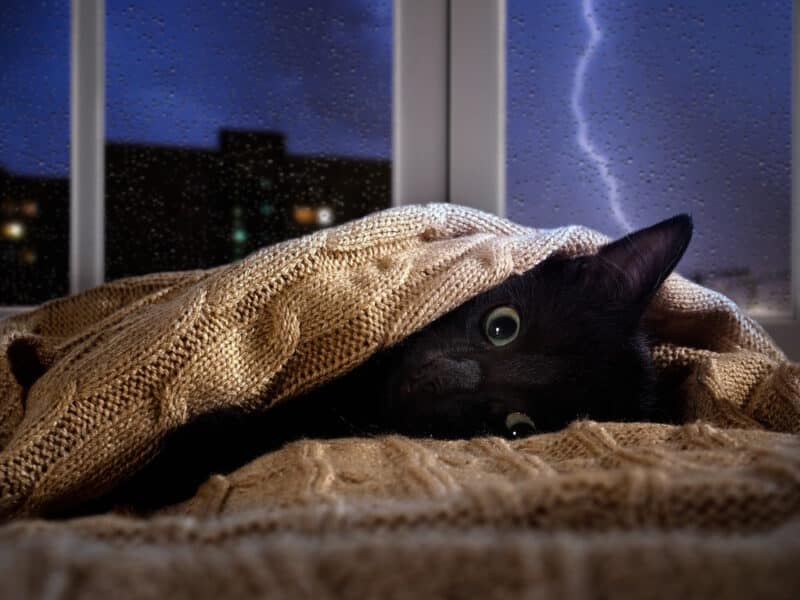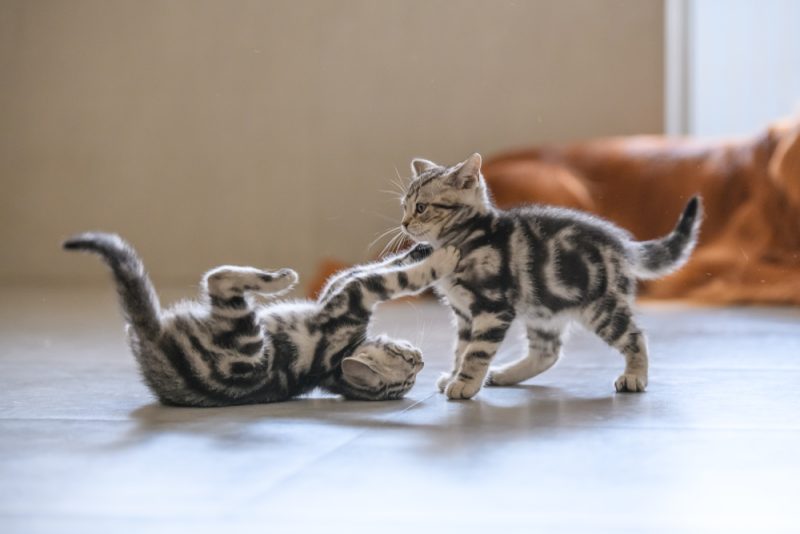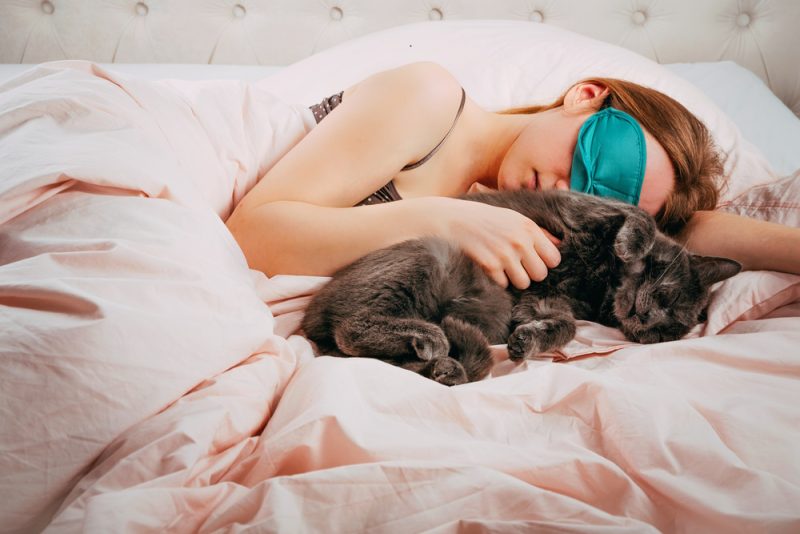In this article
View 8 More +The Nebelung is a beautiful cat whose coat is unique in texture and looks. The Nebelung originated in the US and is a recent addition to the cat fancy; they were first bred in the 1980s and gifted the name “Nebelung” due to their shining, silver-gray fur. Nebelung roughly translates to “creature of the mist,” and these loving cats resemble a stocky, semi-longhaired Russian Blue.
They are interesting and enigmatic cats that are still rare, so read on to discover if a shining Nebelung would fit into your home.
Breed Overview
Height:
9–13 inches
Weight:
7–15 pounds
Lifespan:
15–18 years
Colors:
Blue with silver tips
Suitable for:
Those who are home often, families with respectful children, those who want a trainable cat
Temperament:
Loving, mild-mannered, shy, intelligent, affectionate
The Nebelung is a breed like no other. They are affectionate and kind cats who love to follow their owners around the home, hovering around them no matter where they are. They’re often “shoulder cats” that love to lounge across their owner’s shoulders and watch the world go by!
The Nebelung is highly trainable and capable of learning tricks, such as sitting and giving paws; owners often describe them as “dog-like” in their devotion and personality. They made such an impression on their initial breeders that they were immediately entered into shows and became a breed of their own in the 1980s, distinct from their similar cousins, the Russian Blues.
Nebelung Characteristics

Nebelung Breed Kittens
Nebelung kittens are difficult to find in the US since they’re still a relatively unknown breed. Because the Nebelung is not recognized by the CFA (Cat Fanciers Association), finding a breeder of Nebelung kittens in the US is tricky. You can potentially import one of these beautiful cats from Europe or the UK, but the Nebelung cat price for one kitten is around $1,200 without import fees. You might be able to find a Nebelung to rescue from shelters or ex-show cats, but that is likely very unlikely.
Nebelung kittens are full of mischief, just like all kittens are, but they look decidedly different from their adult counterparts. Nebelungs can take two years or more to get their full, luscious coats completely grown in (especially for males), so Nebelung kittens look more like particularly scruffy Russian Blues until that time. They’re often gangly and look like deer caught in headlights due to their big eyes and long bodies!

Temperament & Intelligence of the Nebelung
Nebelungs are intelligent cats that can be trained to sit, stay, fetch, and even shake, but they need to do it on their terms! Nebelungs want to be close to their owners at all times. They are Velcro cats by nature, but they don’t make themselves obtrusive.
Typically, a Nebelung will hover around their owners or follow them from room to room rather than constantly jumping on them for attention! They are unapologetically affectionate and loving and very gentle with their owners. They’re commonly compared to dogs because of their loyal nature.
However, Nebelungs aren’t as open to strangers, and they’ll often stay true to their name and disappear “into the mist” whenever a new face enters the home. They can be skittish if not properly socialized, though they’re unlikely to be aggressive. The Nebelung doesn’t do well in hectic surroundings and needs a calm environment to flourish. It takes time to earn a Nebelung’s trust.
But, once earned, they will love you for life. However, this usually only applies to a select group of people, and Nebelungs can get very upset when not around their favorite people.
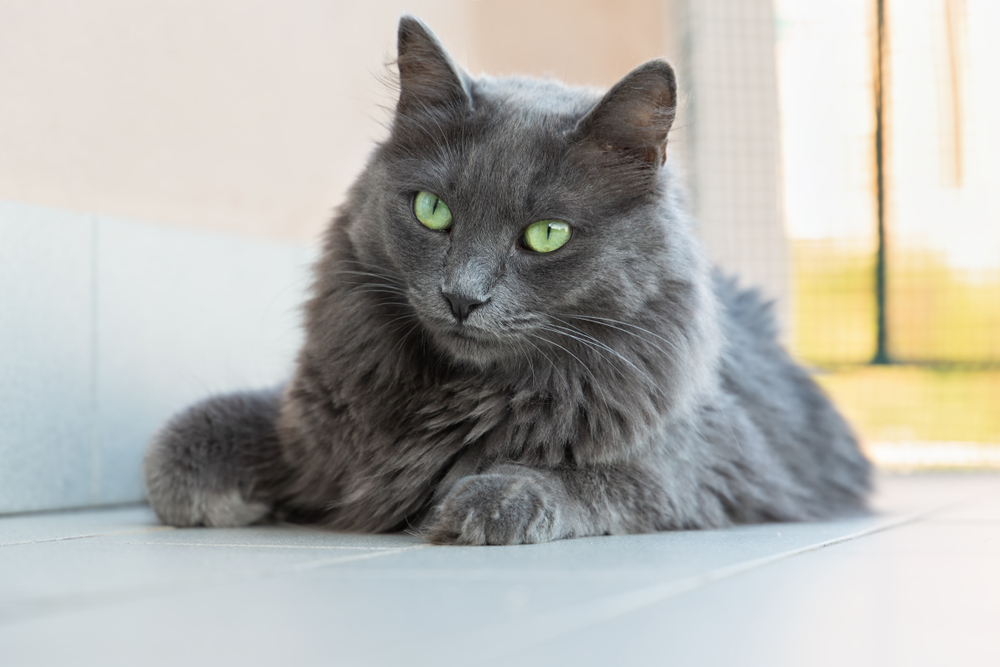
Are These Cats Good for Families? 👪
Nebelungs are excellent cats for families with older children who want a devoted and loving playmate. While young children can sometimes be too much for the gentle and mild-mannered Nebelung, older children who can participate in their care and understand their need for calm will be followed around, groomed, and will always have a friend to talk to (who often talks back!).
Nebelungs can get anxious if left alone for long periods, so they do best in families with at least one person at home for most of the day.
Does This Breed Get Along With Other Pets? 🐶 😽
Nebelungs can get along with other pets in the home if they are well-socialized and exposed to dogs, cats, and small animals as kittens. Nebelungs can sometimes get nervous, so making sure they’re comfortable with other pets early in life will help them cope. They are laid back in nature and often get along well with other cats or cat-savvy dogs.
However, they’re mild-mannered and don’t deal with conflict well.

Things to Know When Owning a Nebelung
Nebelungs need care and attention just like other breeds, with a focus on keeping them calm and happy. They have long lifespans and a very affectionate nature, so be prepared to be followed by a gray shadow if you adopt a Nebelung into your family!
Food & Diet Requirements 🐡
Nebelungs are obligate carnivores like all cats, so they need a high-quality, high-protein diet of both wet and dry food. Nebelungs are a healthy breed but can suffer from the same health problems as all cats, including kidney and bladder problems. Feeding wet or canned food can help your Nebelung take in more water and support their kidneys and urinary system.
Some Nebelungs can be fussy, so you might have to cycle through a few types of food until they settle on one they like! In any case, always ensure your Nebelung has fresh water available.
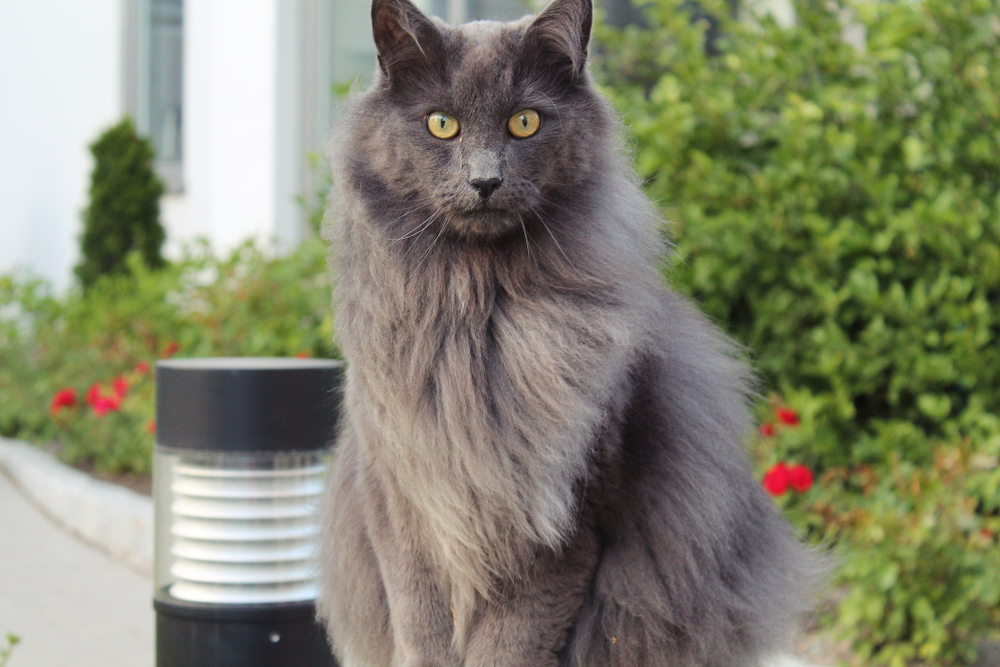
Exercise 🐈
Nebelungs aren’t an especially active breed, so having toys around the home for them to play with during brief daily play sessions is usually more than enough exercise. Making sure you play with your cat and spend quality time with them is important, and exercise and bonding will help them burn off excess energy and help them feel calm.
Giving the Nebelung toys that you can rotate week to week can keep them engaged, and exercise releases endorphins and other “happy” hormones to keep them content.
Training 🧶
Nebelungs are very trainable cats. Training a Nebelung is usually easy due to their intelligence and affection, but you’ll need to keep their attention! Most love to spend time with their owners and are happy to please them, but keeping training sessions short and completing one goal at a time (such as learning to sit) can ensure that training sessions are successful.
Nebelungs can also be clicker trained, and they respond best to training from people they know in a calm environment (without strangers present).
Grooming ✂️
Despite their dense coats, the Nebelung has silky fur that doesn’t need excessive grooming. Because of the fine, silver undercoat, they can sometimes get matted under their armpits and between their hind legs; brushing these areas once a week is usually enough to keep them looking good and tangle-free. During the colder months, many Nebelungs gain ruff and pantaloons (extra-long fur around their necks and back legs).
These areas need brushing out when shedding in the warmer months, but Nebelungs are generally very good at keeping themselves well-groomed. Older cats may need a sanitary clip or bath if they have trouble grooming themselves, but the Nebelung isn’t a breed that often needs clipping. Nail clips and teeth brushing from an early age are essential to keep the Nebelung comfortable and prevent overgrown nails and dental problems.
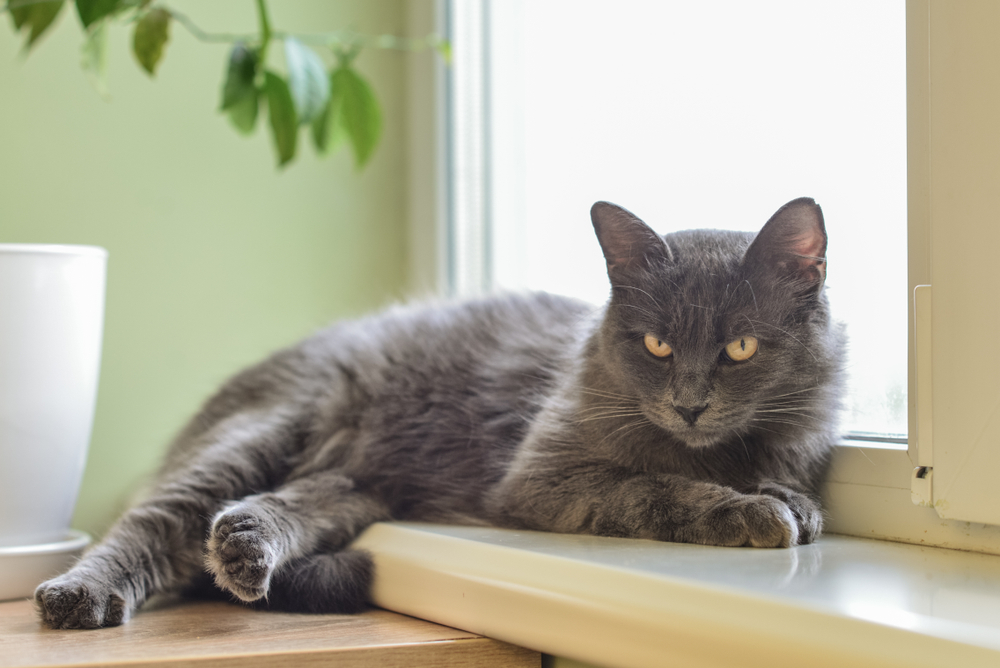
Health and Conditions 🏥
The Nebelung is a pedigree cat, yet they don’t suffer from genetically inherited health problems like many other purebreds. They also don’t suffer from diseases any more than a cross-bred cat would, making them one of the healthiest (and longest-lived) pedigree breeds around! Nebelungs are often healthy and strong but can still suffer from the same problems all cats are prone to.
Keeping your Nebelung fit and trim is important, as they have shorter legs and long bodies, which can mean any excess weight sits on them heavily.
- Bladder stones
- Hyperthyroidism
- Obesity

Male vs Female
Male Nebelungs are often bigger than females and have more stern-looking faces. Female Nebelungs are smaller and more delicate, while the males can grow heavier and broader in the nose and shoulders. Both male and female Nebelungs can grow a ruff, but males tend to develop a more pronounced one.
If male Nebelungs are not neutered, they can grow chubby cheeks, thanks to the extra testosterone.

3 Little-Known Facts About the Nebelung
1. A Poem May inspire Their Name
The first two cats bred together to make this stunning breed (Seigfried and Brunhilde) have prominent German names, and the Nebelung breed may have been named after the German epic poem “Nibelungenlied” (the song of the Nibelungs). This poem, written in the Middle Ages, involves the love lives of Seigfried and Brunhilde.
2. All Nebelungs Have Green Eyes
When Nebelung kittens are born, they often have bright blue eyes. These will slowly change over the first few months of their lives, going from blue to bright green. All Nebelungs have green eyes, and no other color is allowed for cat shows according to the breed standard.
3. Nebelungs Can Be Leash Trained
Anyone who owns a Nebelung can attest to their dog-like personalities, which also extends to being leash trained! Nebelungs should be slowly exposed to a harness (never a collar and leash) before attempting to take them outside, and a custom harness is best to prevent escapes.

Final Thoughts
Nebelungs are truly magical cats, with their mystical, silver-tipped coats and loving and devoted personalities. They are affectionate cats who love being around their owners but aren’t constantly vying for their attention. Most Nebelungs are healthy and content to be home with their immediate family, but they often fear strangers.
They are rare and not easy to adopt, but it’s worth trying to find one if you want a friendly and adoring feline companion.
See also:
Featured Image Credit: Therese Elaine, Shutterstock
